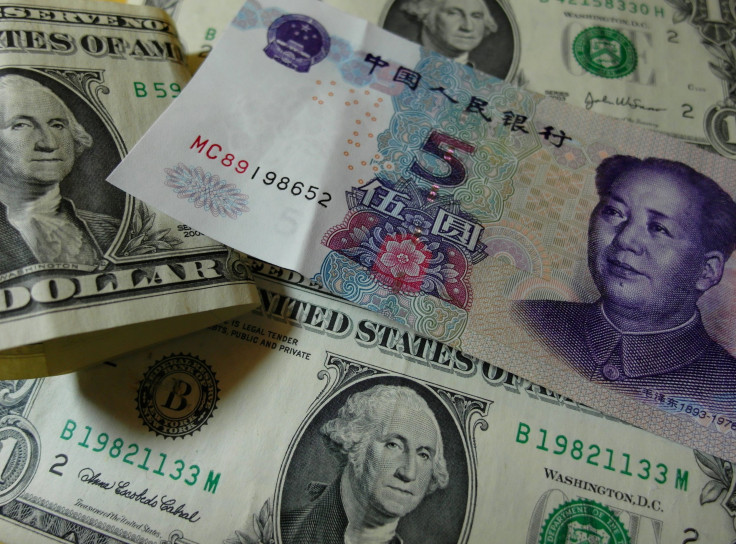China’s Currency Flight: Why Beijing Is Cracking Down On Wealthy Chinese Who Send Money Abroad

China leads the world in exports, but there’s one thing Beijing really wants to avoid sending abroad: its wealth. That's why the People’s Bank of China, the country’s central bank, announced earlier this week new efforts to make it more difficult for investors to park money outside of China and into assets like Australian mega-mansions and skyscraper projects in Seattle.
“The one thing that people are focusing more on is the money coming out of China, in both capital flight and capital outflow,” China pundit and author Gordon Chang told International Business Times. “In other words, both the money people are taking out of China and Chinese investment outside of China. That is extremely indicative of what’s happening right now.”
Capital outflows, as they’re known, have been increasing over the past year as China's economy has decelerated and the country's stock market has lost nearly a third of its value. Beijing is concerned about losing control over the value of the yuan as investors move vast amounts of money overseas instead of spending it domestically to bolster economic growth.
China had nearly $4 trillion in forex reserves by the end of the second quarter last year, according to the country’s central bank. By the end of June, the reserves were down 7.5 percent to $3.69 trillion, encouraging China to impose new measures to crack down on capital flight.
Currently, individuals in China aren’t allowed to send more than $50,000 a year abroad, but China’s wealthy have found ways around this rule, such as using fake invoices to buy foreign currency under the guise of paying for imports, or using illegal money-transfer agents to move wealth into foreign banks.
China’s biggest lenders, like Bank of China Ltd., are increasing internal checks on unauthorized money transfers, according to the Wall Street Journal. Economists have warned that capital outflows have accelerated immensely since China surprised global markets with an Aug. 11 devaluation of its currency, which as of Tuesday was as much as $200 billion, according to J.P. Morgan Chase & Co.
Forex reserves are a basic tool used by countries to control the value of their currencies. Through central banks or other monetary authorities, governments hold assets – usually stable global currencies and foreign government bonds – that can be used to grow or shrink the pool of local currency to control its value. When investors convert yuan-denominated wealth into other currencies to send abroad, the yuan weakens against the U.S. dollar and other major currencies.
The Aug. 11 decision to lower the value of the yuan was made to improve Chinese exports' competitiveness against Asian rivals. But capital flight risks pushing the yuan below Beijing’s target.
© Copyright IBTimes 2025. All rights reserved.






















